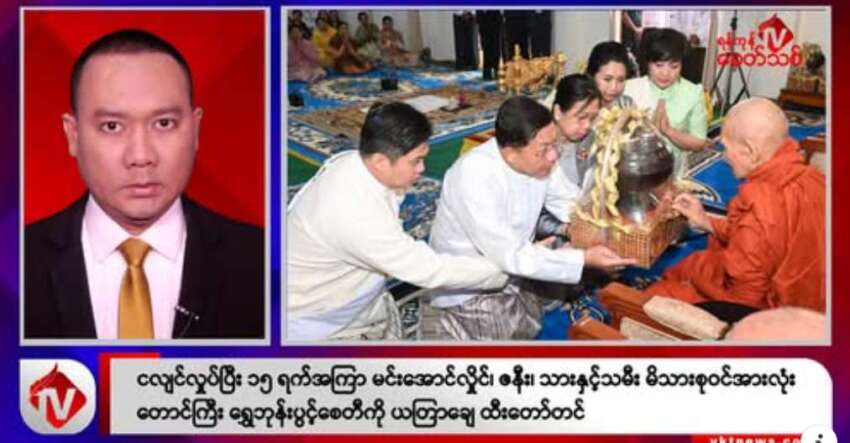
Fifteen days after the devastating earthquake in Sagaing Region that caused numerous casualties and destruction, while affected civilians still lack adequate assistance, military council leader Senior General Min Aung Hlaing and his family members were reported to be performing rituals and donating a ceremonial umbrella at the Shwe Bon Pyint Pagoda in Taunggyi. This action demonstrates the military council’s neglect of civilian needs at a time when emergency relief operations are urgently required for earthquake victims. The contrast between the lack of effective aid for disaster victims and the leader’s focus on religious ceremonies has highlighted the disconnect between the military council’s priorities and the immediate needs of affected civilians.
Instead of providing aid to earthquake victims, military council forces conducted an airstrike on Shauk Phyu Kone village in Kawlin Township, Sagaing Region. The attack resulted in the death of two displaced civilian women. Due to these military airstrikes, local residents have been forced to flee to safer locations, abandoning their homes and possessions. The ongoing military operations have created a humanitarian crisis in the region, with civilians facing both natural disaster impacts and military violence simultaneously. The military council’s continued offensive operations in disaster-affected areas have further complicated relief efforts and increased civilian suffering.
In Kachin State, near Nan Moon town in Mohnyin Township, combined forces of the Kachin Independence Army (KIA) and People’s Defense Force (PDF) intercepted and attacked an advancing military council column. The clash resulted in the immediate death of five military council troops, and the resistance forces captured weapons and ammunition. The continued fighting in the region has caused significant concern among local residents. The military council’s offensive operations have disrupted regional stability and peace, severely impacting civilians’ daily lives. The ongoing military activities have created an atmosphere of fear and uncertainty among local communities, while also hampering their ability to maintain normal living conditions and access basic necessities.



